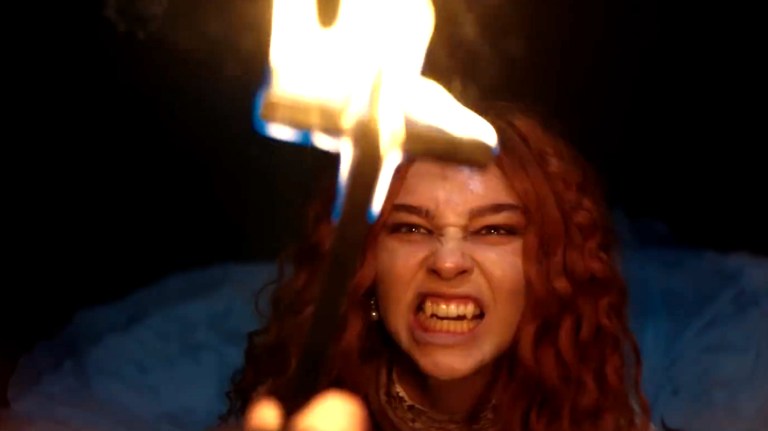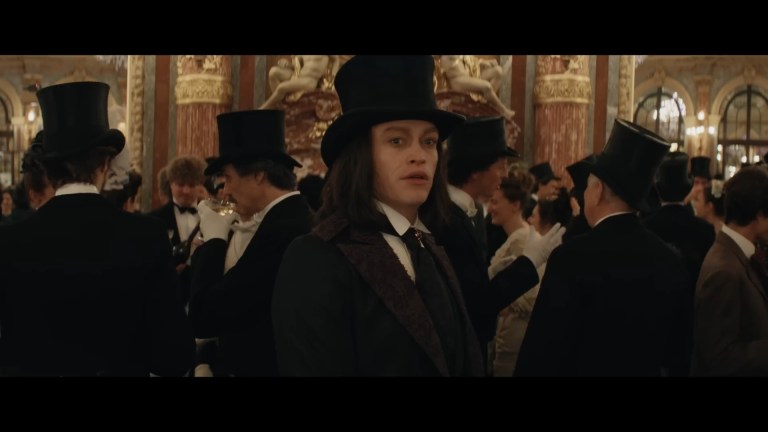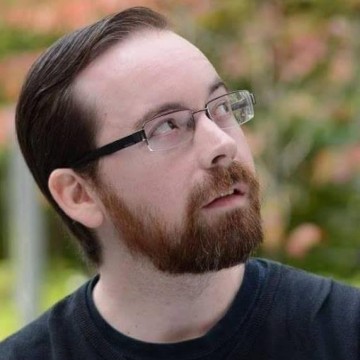Luc Besson is Making a Dracula Movie, But I’m Not Sure He Understands the Source Material
It’s like he cheated on a test by watching the movie rather than reading the book.

I’ve enjoyed a few of Luc Besson’s movies in the past. Of the films he’s directed, Léon: The Professional (1994) is a classic. The Fifth Element (1997) is one of the best sci-fi movies ever. I haven’t been as interested in his work in more recent decades, but Anna (2019) was okay.
Besson knows how to make movies look amazing in a stylized way. So, when I saw that he currently has a Dracula movie in production, my reaction was positive. Then when I saw that Caleb Landry Jones is playing Dracula, I got excited. Jones is a great actor who helps elevate any movie he’s in.

But then I saw the trailer for Luc Besson’s Dracula, and I got less excited. The visuals are nice, sure. And Caleb Landry Jones looks suitably menacing. But a few things are bugging me about it. Things that make me wonder if Besson has ever read the novel he’s basing his movie on.
Now, I’m not someone who demands that movies based on novels should adhere strictly to the source material. For example, Besson’s Dracula is set partially in France rather than England like in the book. That’s totally fine. I also don’t mind if story elements change.
Take, for instance, whatever version of Nosferatu you want. They’re originally based on Bram Stoker’s novel, but the stories and characters are different. That’s totally fine. It’s good even. Different interpretations inspired by the same source material add to the overall beauty of making art. But when I started reading what Besson said about the inspiration for his movie, it made me wonder where his ideas about Dracula are coming from. It starts with this quote:
There’s a romantic side in Bram Stoker’s book that hasn’t been explored that much.
Luc Besson, Deadline 2024
There are a couple of things wrong with this statement. First of all, Bram Stoker’s Dracula (the book, not the movie) is not romantic. The original version of Count Dracula is not motivated by romance, and his connection with Mina is not about some sort of centuries-spanning love story. I suppose you could try to interpret a romantic side to some of the actions and language in the novel, but that’s not what it’s about.
What’s even more amusing is that Besson says that the romantic side of Dracula “hasn’t been explored that much.” This is kind of absurd. The most famous and influential Dracula movie of all time, Tod Browning’s Dracula (1931), was marketed as a love story at the time of its original release. After that, plenty of other Dracula and more general vampire movies incorporate romance as a major theme. Dracula (1979) uses a romance between Lucy (basically Mina’s character, but the names are switched) and Dracula as a driving force for the story. Perhaps most notably though, is Francis Ford Coppola’s Bram Stoker’s Dracula (1992).
Looking at the trailer for Luc Besson’s Dracula, it appears to be based not so much on Bram Stoker’s novel, but more on Francis Ford Coppola’s movie. Maybe Besson saw the full title, Bram Stoker’s Dracula, and assumed it was a direct adaptation of the novel. It was not a direct adaptation. Maybe Besson tried to cheat and just watched the movie instead of reading the book?
Among other differences, the idea that Dracula believes Mina is the reincarnation of his dead wife Elisabeta was invented for the movie. To state it as clearly as possible, the character of Elisabeta was created for Francis Ford Coppola’s movie by scriptwriter James V. Hart. In Luc Besson’s Dracula, there is a character named Elisabeta. She was Dracula’s wife, she died, and Dracula believes he meets her reincarnation centuries later.
Again, it’s fine to make changes to the source material, just be honest about it. When Robert Eggers made Nosferatu, he didn’t say it was based on the Dracula novel, he stated, correctly, that his movie is based on F.W. Murnau’s 1922 film which was inspired by the novel. This is the correct way to cite your sources.
The trailer for Besson’s Dracula (which has also been known up to this point as Dracula: A Love Tale) says it’s “from the works of Bram Stoker.” Technically that’s true in a way, but it’s more of an adaptation of previous adaptations of Stoker’s novel. So, like the telephone game, the original idea is getting more obscured as time passes.

Did Luc Besson read the original novel? I don’t know. But he definitely gives that impression by what he’s said. Though if he did read it, I don’t think he understood it. So, that bugs me about his movie. Also bothering me is the fact that he didn’t have any motivation to make a Dracula movie, he just wanted to make another film with Caleb Landry Jones and thought he’d make a good Dracula.
Besson, who is friends with Landry, said, “It’s not Dracula, my fascination is Caleb.” It sounds like Besson backed his way into the movie not because he felt compelled to tell its story, but because he thought it would look good. That doesn’t give me a lot of hope for the final product. I’m sure I’ll still see it, but I’ll keep my expectations low.
Dracula is scheduled for release in France on July 30th, but there is currently no worldwide release date set.
